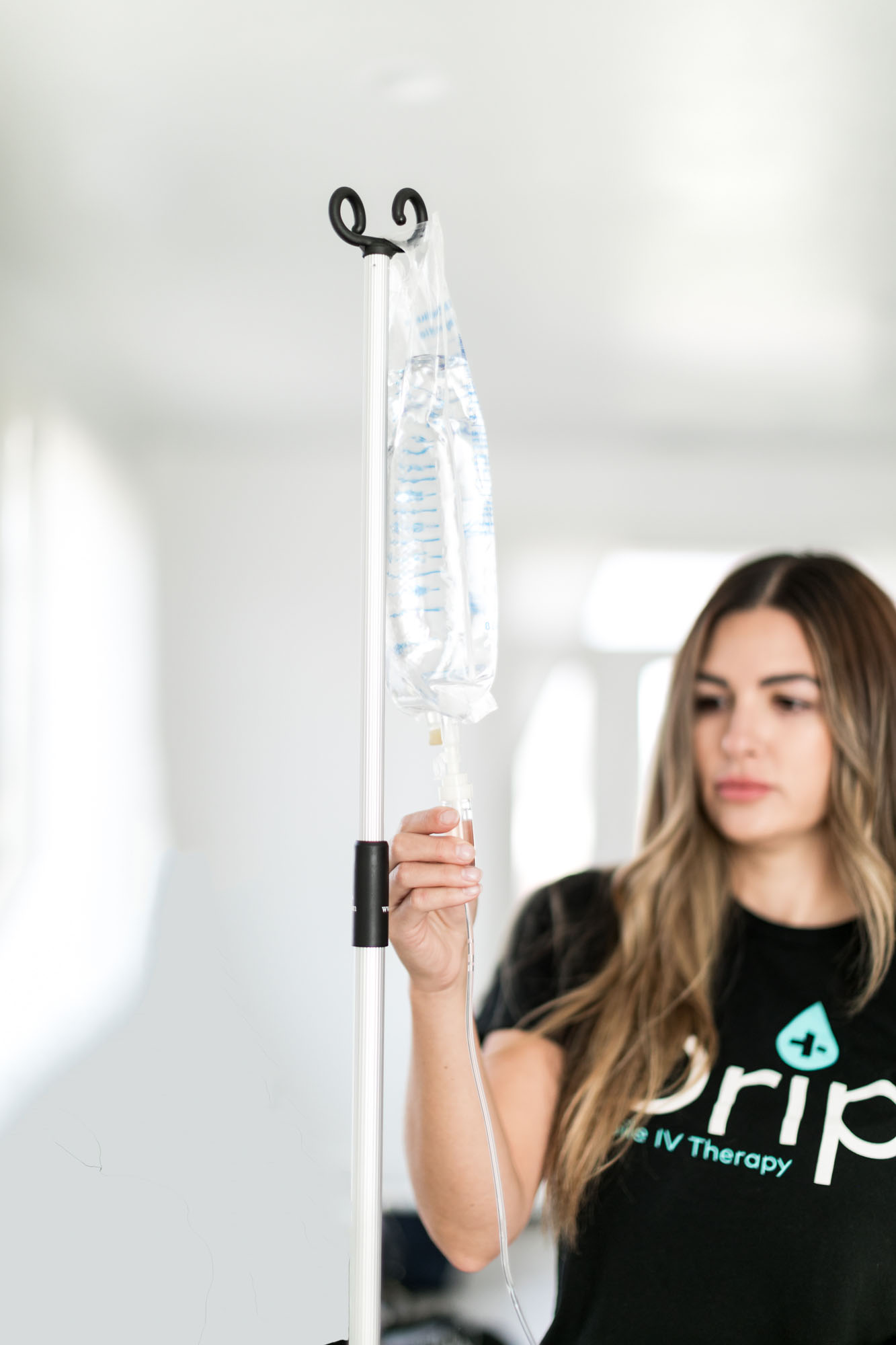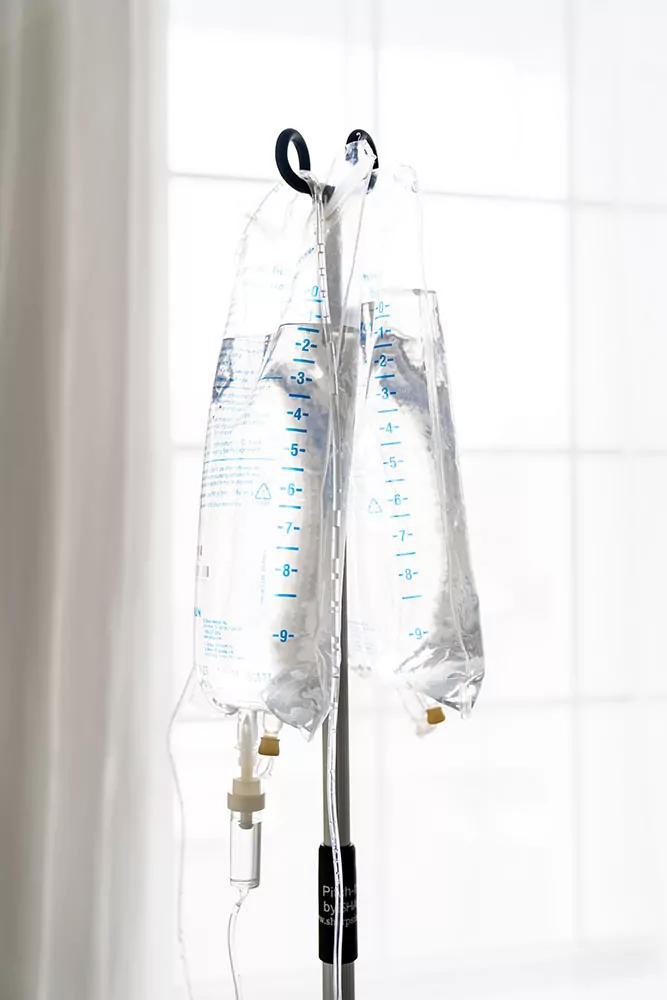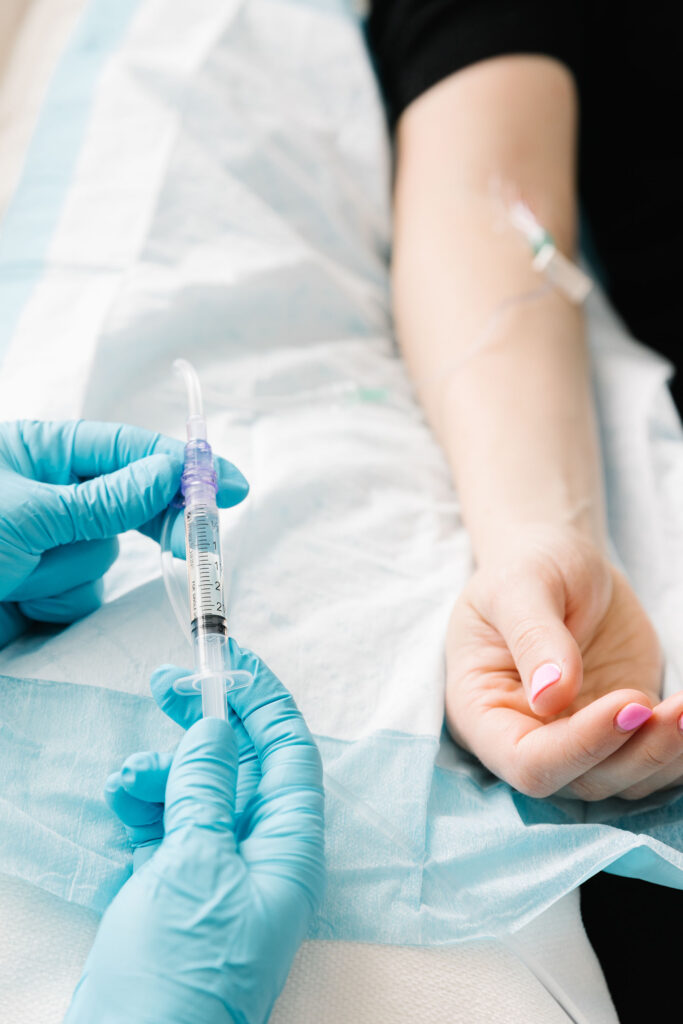In the arid landscapes of Utah, staying properly hydrated is a constant challenge. Whether you’re exploring the outdoors or just navigating the demands of daily life in the state, dehydration can strike swiftly, leaving you feeling drained and unwell. While drinking water is crucial for maintaining hydration, there are times when your body needs a faster, more effective solution. That’s where IV therapy for dehydration comes to the rescue. In this article, we’ll dive into the world of IV therapy, exploring its benefits, what it involves, and how it can be a game-changer for those seeking quick and efficient rehydration in the Beehive State. So, if you’re ready to discover the fastest way to conquer dehydration, read on.

Dehydration is a condition that occurs when your body loses more fluids than it takes in, leading to an imbalance in essential electrolytes and bodily functions. While mild dehydration can cause discomfort, severe dehydration is a serious medical condition that demands immediate attention and can really be helped by IV therapy for dehydration. Recognizing the signs of severe dehydration is crucial for taking prompt action to restore proper hydration. Below are three symptoms that indicate severe dehydration:
Extreme Thirst: One of the initial signs of dehydration, even in its milder form, is an increased sensation of thirst. However, in cases of severe dehydration, this thirst becomes overwhelming and unquenchable, persisting despite attempts to drink fluids.
Dark Urine: The color of your urine can serve as a useful indicator of dehydration. In severe cases, urine becomes highly concentrated and takes on a dark yellow or amber hue. Extremely dehydrated individuals may even notice their urine appearing brown due to the high concentration of waste products.
Rapid Heartbeat and Breathing: As the body loses significant fluid volume, blood pressure can drop, leading to a rapid heartbeat as the heart works harder to pump blood. Rapid breathing may also occur as the body attempts to compensate for the reduced blood volume and oxygen delivery.

Now that we’ve explored the symptoms of severe dehydration, you might be wondering, “Can you be dehydrated even if you drink a lot of water?” Let’s delve into this common question and shed light on some surprising aspects of hydration.
It’s a common misconception that drinking large quantities of water equates to being well-hydrated. While staying adequately hydrated typically involves sufficient water intake, there are factors beyond the amount of water you drink that influence your overall hydration status.
One crucial factor is electrolytes, which are minerals like sodium, potassium, and magnesium. These electrolytes help regulate the balance of fluids in and around your cells. When you drink excessive amounts of plain water, you can dilute these essential electrolytes in your body. This condition, known as hyponatremia, can mimic the symptoms of dehydration, such as fatigue, dizziness, and confusion.
Furthermore, certain medical conditions or medications can lead to increased fluid loss through excessive sweating or urination, which may require more than just water to rehydrate properly. This is where IV therapy for dehydration becomes especially valuable. IV therapy provides a balanced solution of water and electrolytes, rapidly replenishing lost fluids and helping you recover from dehydration more effectively than water alone.
So, while drinking water is undoubtedly essential for maintaining proper hydration, it’s equally important to ensure you’re replenishing lost electrolytes and addressing any underlying factors that might be contributing to dehydration. IV therapy for dehydration can be a targeted and efficient way to achieve this balance and restore optimal hydration.

When it comes to addressing dehydration swiftly and effectively, especially in cases where you need rapid rehydration, intravenous (IV) therapy is often considered the fastest and most efficient solution. IV therapy for dehydration involves the direct infusion of fluids and essential electrolytes into your bloodstream, bypassing the digestive system.
Here’s why IV therapy stands out as a rapid dehydration remedy:
Immediate Hydration: With IV therapy, the rehydration process begins as soon as the fluids enter your bloodstream. This is much quicker than oral rehydration, where you need to wait for your digestive system to absorb water.
Precise Electrolyte Balance: IV solutions are carefully formulated to contain the right balance of electrolytes, such as sodium, potassium, calcium, and magnesium. This ensures that your cells receive the necessary minerals for proper hydration.
Symptom Relief: IV therapy can provide rapid relief from dehydration symptoms, including fatigue, dizziness, nausea, and muscle cramps.
Customized Treatment: Depending on the severity of your dehydration, the specific IV therapy formula can be adjusted to meet your needs. This allows for a tailored approach to rehydration.
Enhanced Absorption: IV fluids are delivered directly into your bloodstream, ensuring maximum absorption. This is particularly beneficial if your digestive system is compromised due to illness, surgery, or other factors.
Professional Monitoring: IV therapy is administered by trained medical professionals who can monitor your progress and adjust the treatment as necessary to achieve optimal rehydration.
In Utah, where factors like high temperatures and physical activity can contribute to dehydration, IV therapy for dehydration is readily available to provide rapid relief and restore your body’s fluid balance efficiently. Whether you’re dealing with dehydration from exercise, illness, or simply the challenges of a hot climate, IV therapy offers a fast and effective solution to help you recover and feel your best.
Intravenous (IV) therapy for dehydration commonly includes a balanced solution known as normal saline (0.9% sodium chloride). This sterile saline solution is designed to mimic the body’s natural fluids, making it an effective choice for rehydration. In addition to normal saline, many IV therapy providers, such as those in Utah, offer specialized vitamin infusions that can complement the rehydration process.
The components of a typical IV therapy solution for dehydration may include:
Normal Saline: Normal saline is a sterile solution of salt and water. It helps restore proper fluid balance by replenishing lost fluids, making it a key component of IV therapy for dehydration.
Electrolytes: Essential electrolytes like sodium, potassium, calcium, and magnesium may be added to the IV solution to restore electrolyte balance. These minerals play a vital role in various bodily functions, including nerve and muscle function.
Vitamins: Many IV therapy providers offer vitamin infusions that can enhance the rehydration process. Vitamins like B-complex vitamins and vitamin C are commonly included to provide an extra boost to overall well-being.
By combining normal saline with essential electrolytes and optional vitamin infusions, IV therapy for dehydration provides a comprehensive and efficient solution for rapid rehydration. It’s a valuable resource for individuals in Utah looking to quickly recover from dehydration, whether due to outdoor activities in the arid climate or other factors.
References: